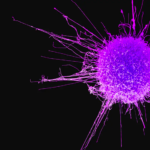(Photo : Women waiting at a cross point to exit Gaza for treatment)
New Delhi, February 05, 2019:
After being diagnosed with cancer, patients in Gaza may often have to wait for months before being able to receive treatment. Getting a permit to access the health care needed outside can be a stressful and unpredictable process, and many apply multiple times before being able to exit. Even then, some patients are never able to secure the permits they need to access care.
The ability of Gaza’s hospitals to provide adequate diagnosis and treatment to cancer patients is severely limited due to chronic shortages of medicines and lack of medical equipment. Nuclear medicine scanning needed for staging cancers, radiotherapy equipment and some specialized surgeries are unavailable. More than half of essential chemotherapy drugs were at less than a month’s supply throughout 2018.
Many patients need health care elsewhere in the occupied Palestinian territory or abroad. But to leave the Gaza Strip for treatment, they must obtain a permit from Israeli authorities. This process can take up to several months, and even then some patients may be unsuccessful in securing access to travel for health care. In 2018, 39% of patient applications for permits to exit Gaza for health care were unsuccessful.
64-year-old Samira was diagnosed with uterine cancer in 2016. She underwent surgery but then required follow-up treatment unavailable in Gaza. Doctors referred Samira for radiotherapy to East Jerusalem. It took her more than 6 months and 5 permit applications to finally exit Gaza in June 2018. “All this time I was suffering from abnormal bleeding. It was a matter of life and death. Why was I denied a permit?’’ she says.
Proper cancer diagnosis and effective treatment are essential to improve the prognosis of patients and their chance of survival. The 5-year survival rate for breast cancer can exceed 80% if early detection and essential treatment services are available and accessible. In Gaza, however, it is significantly lower – only 65% of women with breast cancer survive 5 years after diagnosis.
Khadijah, a 32-year-old mother of 4, noticed something unusual with her breast in December 2017. Soon doctors confirmed she had breast cancer. In January 2018, Khadijah applied for a permit to go to Augusta Victoria Hospital in East Jerusalem for a specialized investigation – to see whether the cancer had spread and if so, how far. Her permit was denied. She started receiving chemotherapy in Gaza, but for optimal treatment surgery was needed. In July, Khadijah reapplied for a permit, and again was denied. She decided to change her treatment destination to Egypt. Khadijah’s second attempt to leave Gaza to Egypt was finally successful. She had surgery in August 2018, 7 months after diagnosis.
Every cancer patient has the right to health. This means being able to access quality and acceptable health care and to enjoy the conditions of life that support staying healthy. Restrictions to accessing essential health services are one of the major barriers to the right to health for Palestinians living in the West Bank and Gaza Strip. Restrictions affect cancer patients at a vulnerable point in their lives, when they need specialist care and services for diagnosis and treatment. The World Health Organization calls for the protection and fulfilment of the right to health for all Palestinians.







